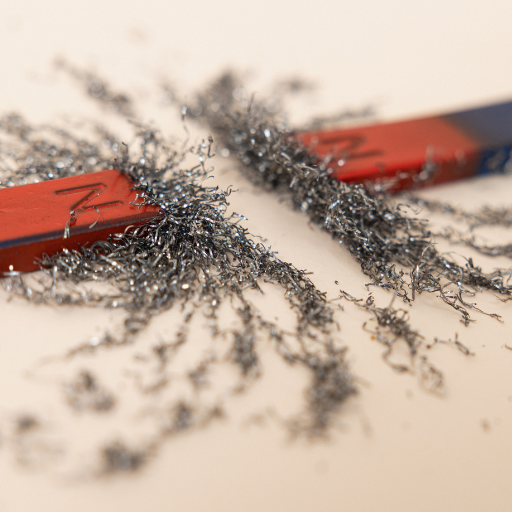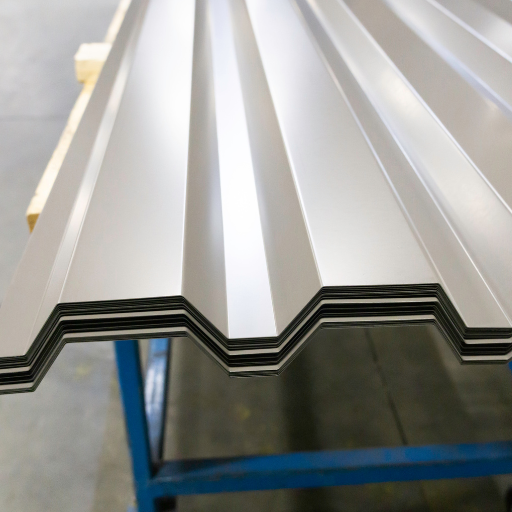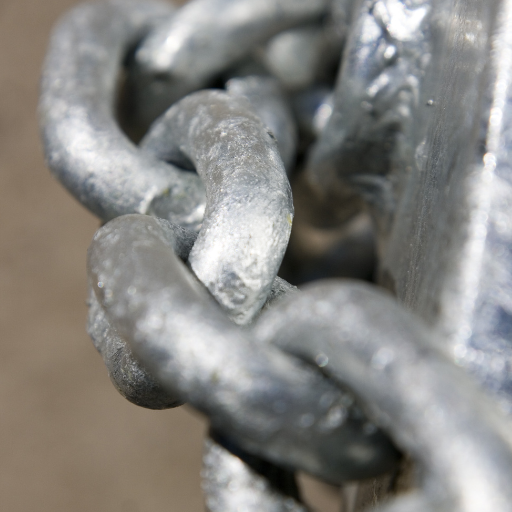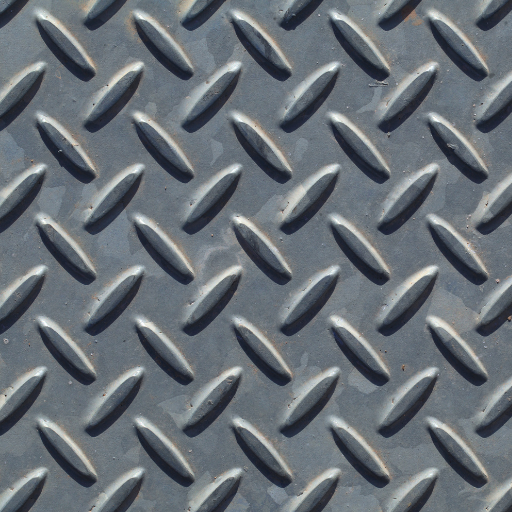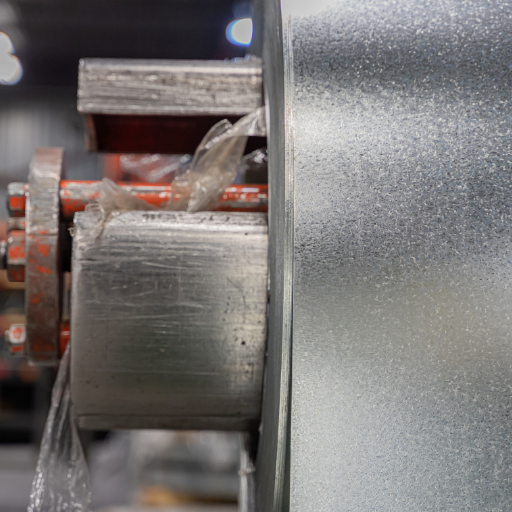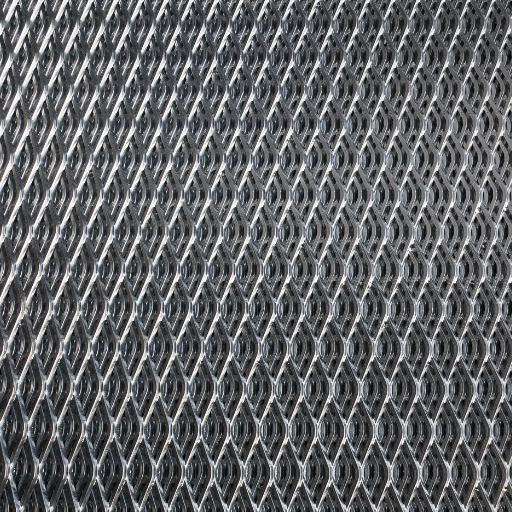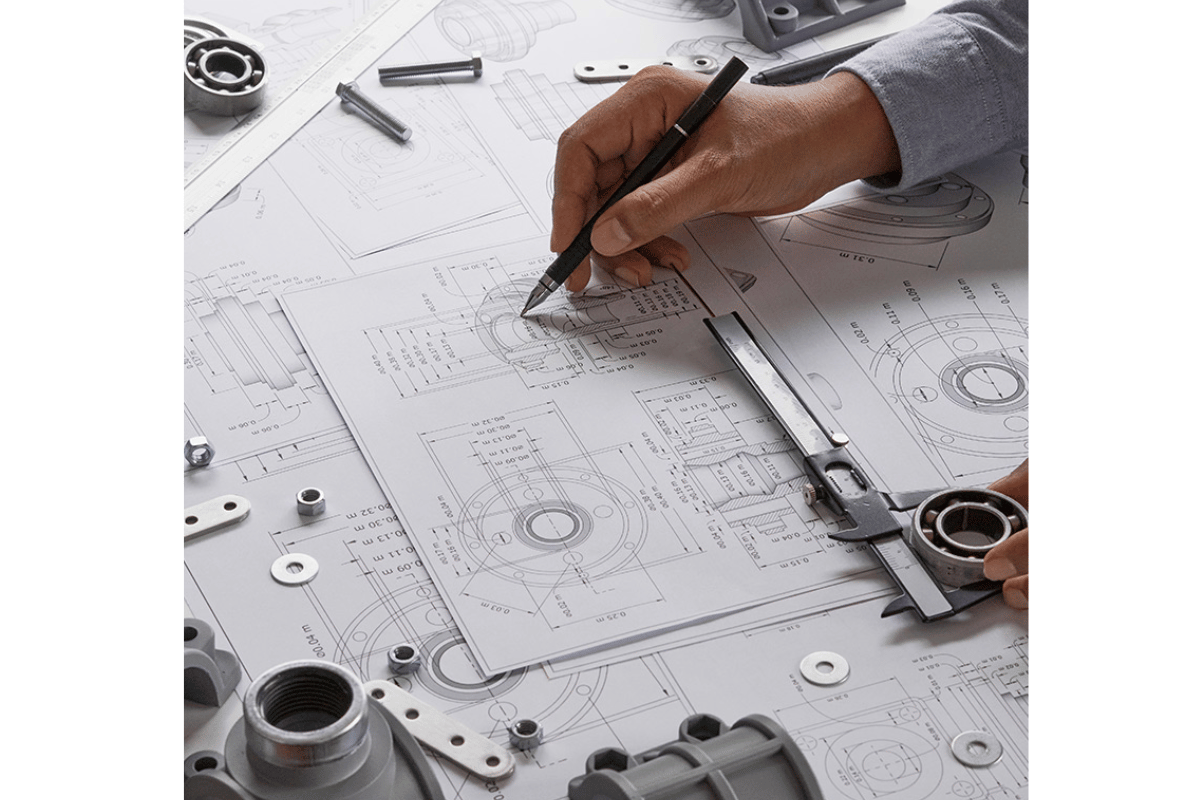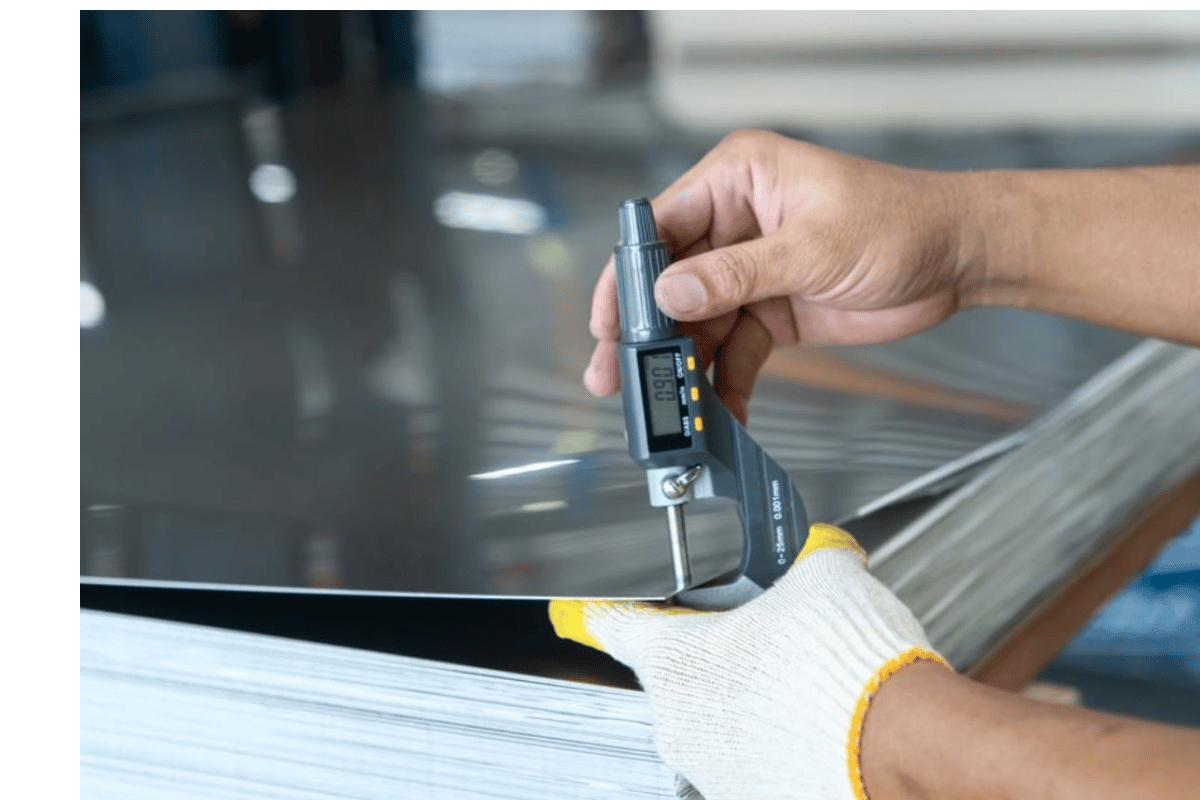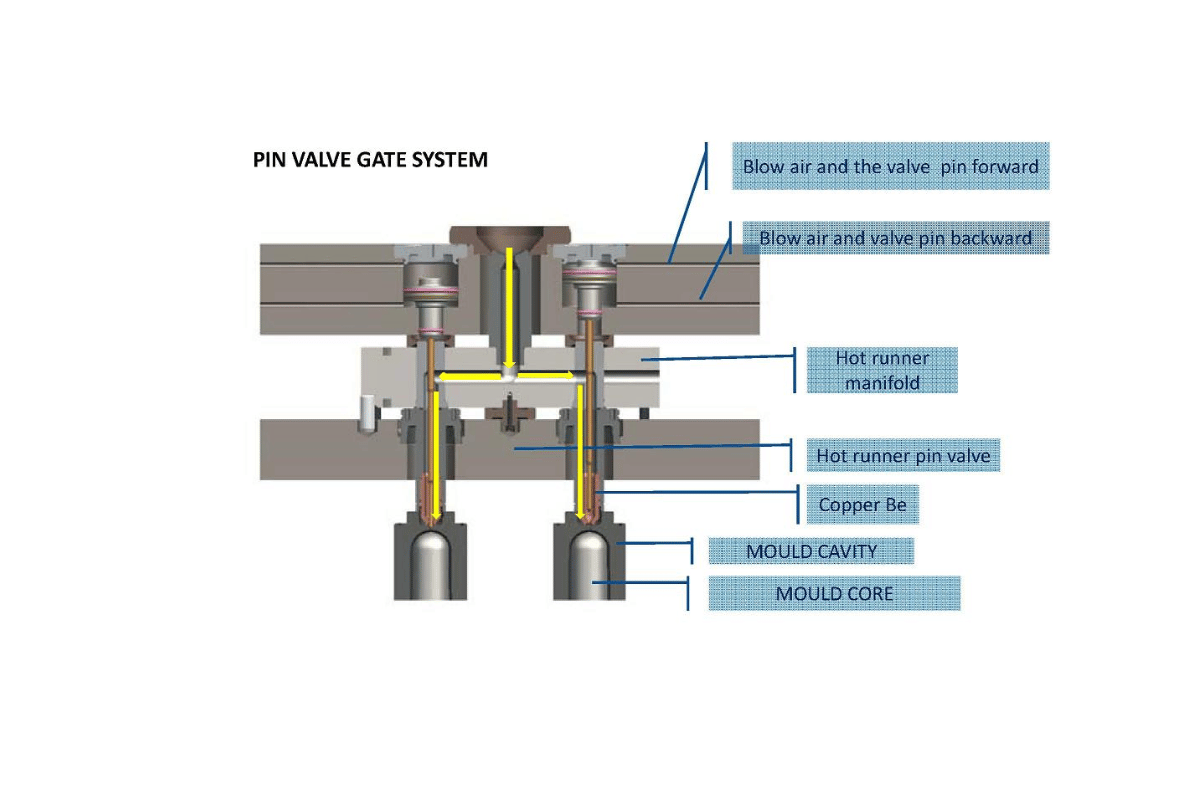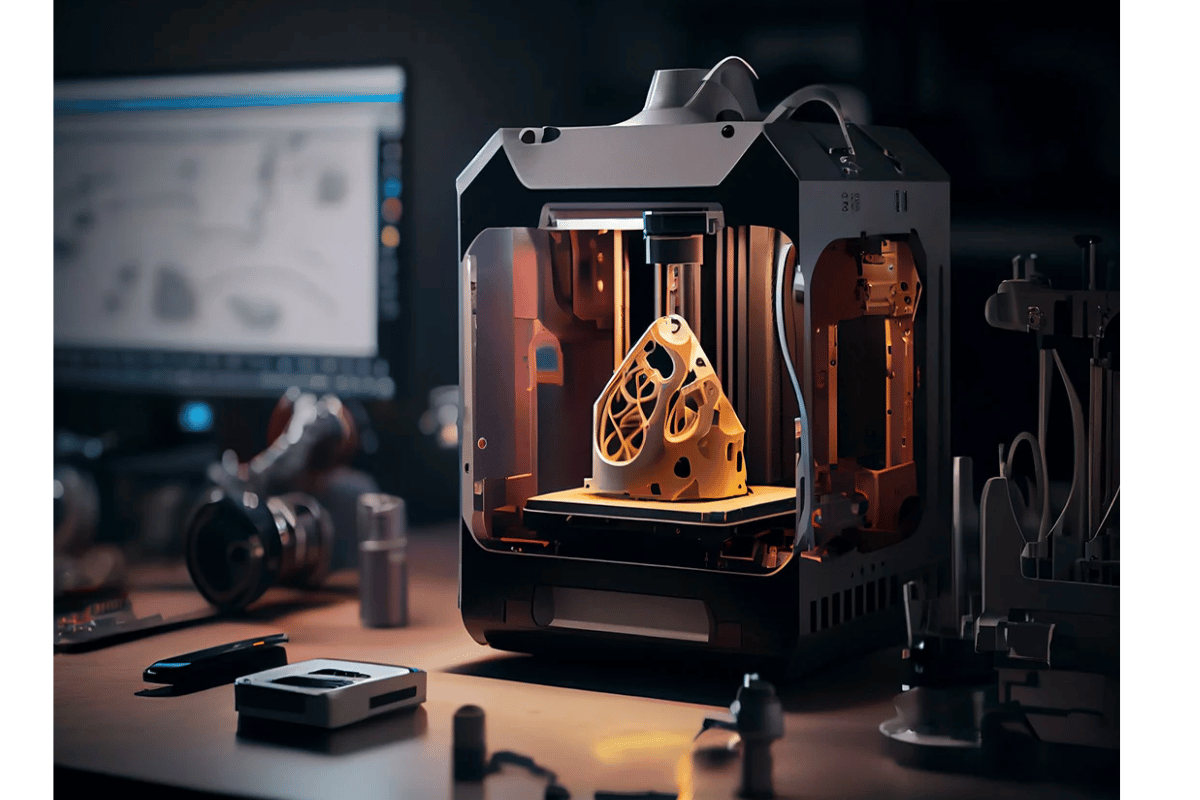Various industrial applications and scientific research demand that one comprehend the magnetic properties of galvanized steel. Galvanized steel has a protective zinc coating which makes it resistant to corrosion. Additionally, this type of steel exhibits some unique features of magnetism that are worth delving into further. The present article discusses the basics of magnetism in steels with an emphasis on galvanization’s effects on these properties and the possible application of this knowledge. This study seeks to understand how galvanization as well as magnetism interact so that we can make informed choices regarding materials for use in fields like building and electronics.
What is Galvanised Steel?
Energized steel is used to describe a type of steel that has been coated with a layer of zinc in order to protect it from corrosion. This protecting layer is usually put by means of hot-dip galvanizing, in which case the steel gets immersed into molten zinc. The resultant zinc coating serves as an extra layer thus barring moisture and oxygen from reaching the base steel and lengthening the longevity of this material significantly. Galvanized steel due to its strength, durability, and resistance against weathering has become indispensable in many industrial sectors such as automotive, construction and marine applications.
Galvanised Steel Composition
The following are the main ingredients found in galvanised steel:
- Base Steel: As the name suggests, this is basically just pure carbon or alloyed iron which determines the major strengths and structural capabilities of a galvanised product.
- Zinc Coating: In fact, it is this protective zinc layer that distinguishes galvanised steel from others. Typically, depending on different processes of galvanization as well as intended use, the thickness of this coating varies between 0.2 and 2.5 ounces per square foot.
- Alloy Layers: During this procedure layers of iron-zinc alloys form between outermost zinc layer and basic metal they include;
- Gamma Layer (Γ): It contains about 75% Zinc (Zn) while Iron (Fe) takes up close to 25%. This one forms closest to the substrate steel thereby increasing adhesion power between this coat & parent metallic surface underneath.
- Delta Layer (Δ): It comprises 90% Zinc (Zn) versus10% Fe (Iron). This adds more adhesive power hence making it even stronger than before.
- Eta Layer (η):This almost pure Zn-Zinc is found at the top most surface so that it can give resistance towards both corrosions plus other forms like weathering.
- Minor Elements: Sometimes there can be small quantity of different elements contained in the steel or zinc alloy. They may be; lead, aluminium and antimony among others that can influence properties of coated galvanised materials as a whole.
Data on Galvanised Steel Composition
- Typical Zinc Coating Weight:
- Light Coating: 0.2 – 0.5 oz/ft²
- Standard Coating: 0.74 oz/ft² (G90)
- Heavy Coating: 1.5 – 2.5 oz/ft²
- Iron-Zinc Alloy Layers Composition:
- Gamma Layer: 21-28% iron content by weight
- Delta Layer: 7-12% iron content by weight
- Eta Layer: 99% zinc content by weight
This detailed composition analysis informs both the manufacturing process and the selection of appropriate steel grades for different industrial requirements which is essential to better predict material performance and longevity in various applications.
Benefits of Galvanised Steel
Galvanised steel offers so many advantages which account for it being preferred more than any other material used in construction and industry in general. Here are some key benefits stated simply:
- Corrosion Resistance: The main benefit of galvanized steel is its highly effective resistance to corrosion, where the zinc coating acts as a barrier against moisture and oxygen from reaching underlying metal surface, hence making it most suitable for structures exposed outside.
- Long Lifespan: Due to its strong resistance against corrosion, galvanised steel has much longer life than uncoated ones do which makes them go for decades on end without showing any sign of wear; something that matters quite a lot in infrastructure as well as industrial projects alike.
- Low Maintenance: The galvanised steel requires little maintenance across its lifetime. Repeatedly apply and maintain the protective zinc layer is not necessary, which saves time and money in the long run.
- Durability: Enhanced strength and durability are provided by the combination of iron-zinc alloy layers (Gamma, Delta, Eta). These layers increase the bond between zinc coating and steel providing superior protection against mechanical damage threats.
- Cost-Effective: Even though galvanised steel may have higher initial costs as compared to non-coated steel, it is cost effective because of its low maintenance needs and durability. For big projects, there are lesser repair and replacement expenses making it an economic choice.
- Versatility: Galvanised steel can be used in different areas such as construction works, motor vehicle industry, farming activities or even household appliances. For this reason it is offered in three different coating weights; light, standard or heavy thus suiting every project based on preferences.
- Environmentally Friendly: Galvanised steel also has environmental benefits. The zinc coat can be recycled together with the base steel hence reducing wastage as well as environmental impacts.
This can help one choose galvanized steels for appropriate applications that would result to optimum performances across all types of environment with respect to cost effectiveness.
Corrosion Resistance of Galvanized Steel
Let’s look at what makes a galvanized steel corrosion resistant in simple terms as we now analyze these factors as a professional you would normally consider if you were asked about how to make your article reader-friendly without losing its scientific content at all?
- Zinc Coating: One key reasons why galvanized steels resist corrosion so well lies within their protective zinc coatings. This acts as a barrier preventing moisture, oxygen and other environmental agents from reaching the surface of the metal.
- Galvanic Protection: Zinc is also a good material for galvanic protection. Corroded first before any underlying steel will be affected thus while the coating might have scratches or be damaged, its surrounding zinc will be corroded. This action of sacrificing greatly enhances the life span of steel.
- Iron-Zinc Alloy Layers: When zinc reacts with iron during galvanization, it forms several alloy layers (Gamma, Delta and Eta). These layers enhance the adherence between the zinc coating and the steel thereby adding another level of protection against mechanical damage making it durable.
- Uniform Coating Thickness: The process of galvanization guarantees consistent anticorrosive coverage on all sides of the steel material. In various environments, this coat is able to maintain its integrity towards protecting steel because it is constant.
- Adhesion Quality: The bond that is formed between the zinc layer and the steel base is very strong. Even in harsh conditions, this high adhesion quality ensures that one’s protective coat remains undamaged hence maintaining its long-term effectiveness.
- Self-Healing Properties: Instances where there are damages to this coating by any chance then it can exhibit some degrees of self-healing capabilities when exposed to moisture. As such upon coming into contact with oxygen as well as carbon dioxide, leading to a formation of a protective layer known as zinc carbonate that acts on exposed sections of small sizes thus preventing corrosion away.
Through understanding these parameters in details only we can explain why galvanized steels are very good in fighting corrosion as well as being applicable in plenty diverse areas
What Makes Galvanized Steel Magnetic?
Steel, which is a ferromagnetic material is magnetic because of its composition. Steel is mainly made up of iron, a metal that has strong magnetic properties. Galvanizing involves dipping the steel in zinc to prevent rust. However, the magnetism of the steel does not change because of this coating with zinc. Thus even after undergoing galvanization and despite being elegantly protected against corrosion through such process mentioned above, the natural magnetism remains intact hence making it be a magnetic galvanized steel.
Understanding Zinc Coating
To appreciate the useful features of galvanized steel you must understand the zinc coating as an industrial expert like me can ascertain. During hot-dip galvanisation, molten zinc is used to coat the surface of the steel. This results in metallurgical reactions between these two components leading to layers of ductile zinc-iron alloy within and an exterior layer comprising pure zinc on it. By combining these layers together they improve its resistance to corrosion.
Key consideration with regards to effectiveness from experience would be thickness of zinc coating when applied on my type of steel for better results. The longer time that the corrosive elements take before corroding my steel will depend on how thick the covering is made; thicker coatings therefore remain protective over longer periods than thinner ones do just like what you see in painted objects. On top of that, self-healing properties are also interesting features. At times when small scratches or dings occur air and moisture exposed areas can react to form a barrier layer made up of ZnCO3 thereby sealing off other parts from getting rusted too.
Therefore when one considers these features collectively then galvanized steel becomes ideal for application in different industries where long term longevity and tolerance towards harsh environmental conditions take precedence.
Influence Of Alloy Composition On Magnetism
As a specialist in this area I can briefly discuss how alloy composition affects magnetism.Iron content plays an important role in determining whether or not steel is magnetic. After the process of galvanization, galvanized steel retains its magnetic properties because it consists largely of iron. Nevertheless, the presence of a zinc coat does not markedly influence the magnetism of the steel despite enhancing its resistance to corrosion and durability. However, modification of these characteristics can be made if the alloy composition includes other constituents like nickel or chromium in significant quantities. In case my galvanized steel, an additional component used is zinc which doesn’t interfere with its inherent magnetism. Thus, even after applying a zinc coating to protect it from rusting, your material still remains magnetic being therefore classified as galvanized steel.
Galvanised Steel vs. Stainless Steel
An industry professional can offer a brief comparison between galvanized steel and stainless steel.
Both materials are widely used in various industrial applications, but they have distinct properties and benefits.
Galvanised Steel:
- Corrosion Resistance: Galvanized steel is coated with zinc that prevents it from rusting and increases its lifetime in severe environments.
- Cost-Effectiveness: It is usually cheaper than stainless steel, consequently popular for large-scale projects.
- Magnetic Properties: This metal retains its magnetism since the process does not significantly affect its original magnetic state.
- Application: It is suitable for both outdoor and industrial application where moisture and other corrosive substances are present.
Stainless Steel:
- Corrosion Resistance: Chrome content leads to creation of a passivation layer of chromium oxide which causes corrosion resistance even without addition of any coatings on it.
- Strength and Durability: Stainless steel tends to be stronger and more durable than galvanized steel especially in terms of tensile strength as well as hardness
- Non-Magnetic: Quite often non-magnetic due to higher levels of nickel alongside chromium bases that alloy forms
- Application: Preferred for applications requiring high strength, aesthetic appeal, and resistance to a wider range of corrosive environments, including marine settings.
In conclusion, choosing between galvanized or stainless steel depends on certain factors such as budget, exposure conditions among others mentioned above.
Differences in composition and properties
As an industry expert, let’s break down the differences between galvanized steel and stainless steel in an easy-to-understand manner by looking at their composition and properties one by one.
Composition
- Galvanized Steel:
- Base Material: Made from carbon steel.
- Coating: Covered with a layer of zinc to protect against rust.
- Stainless Steel:
- Base Material: Also made from steel but has a higher percentage of chromium (at least 10.5%), along with other alloying elements like nickel and molybdenum.
Properties
- Corrosion Resistance:
- Galvanized Steel: Relies on the zinc coating to prevent rust. The zinc acts as a sacrificial layer, corroding before the steel underneath.
- Stainless Steel: The chromium content reacts with oxygen to form a self-healing chromium oxide layer, providing superior corrosion resistance without an additional coating.
- Cost-Effectiveness:
- Galvanized Steel: Generally cheaper due to lower material and production costs. Ideal for large-scale projects where budget is a concern.
- Stainless Steel: More expensive due to the cost of alloying elements and more complicated manufacturing processes.
- Strength and Durability:
- Galvanized Steel: Provides sufficient strength for many applications but is not as strong or durable as stainless steel in terms of tensile strength and hardness.
- Stainless Steel: Offers higher strength and durability, making it suitable for demanding environments that require extra toughness.
- Magnetic Properties:
- Galvanized Steel: Remains magnetic, as the zinc coating does not significantly affect its inherent magnetism.
- Stainless Steel: Often non-magnetic, especially in grades that contain higher amounts of nickel and chromium.
- Application:
- Galvanized Steel: Commonly used in outdoor, agricultural, and industrial environments where moisture and corrosive elements are present but not excessively harsh.
- Stainless Steel: Preferred in industries that demand high strength, an appealing aesthetic, and resistance to a wide range of corrosive conditions, such as marine, medical, and food processing industries.
By understanding each of these parameters in detail, we can clearly see how the choice between galvanized steel and stainless steel hinges on specific needs like budget, environmental exposure, and mechanical demands.
Comparison of resistance to corrosion.
From my practical knowledge in the field, I can say that galvanized steel and stainless steel differ a lot in terms of corrosion resistance. Many different environments are able to experience adequate corrosion resistance when made up of zinc coate. Such metals like galvanized steel that has a layer of zinc have enough protection against oxidation in many atmospheres hence capable of resisting corrosion especially under conditions where there is occasional moisture and limited exposure to harsh chemicals but if exposed to more aggressive conditions the zinc layer may decay with time thus causing underlying steel Corrosion.
On the other hand, stainless Steel is an epitome of rust free material. Therefore, it has oxide layers that protect it from corroding elements making it ideal under severe conditions. Thus, in my works I frequently preferred stainless steel over those located near coastlines, medical facilities and food processing plants because they may be often affected by aggressive agents for which case longevity is demanded as condition for purchase. Consequently, this explains why whenever considering long-term performance or extreme environment effects resistant my best choice usually goes to stainless steels whose exceptional durability ensures that their users are not worried about them becoming severely corroded.
Stainless Steels’ Magnetic Properties
As an expert from the industry, one should understand that all types of stainless steels do not possess magnetic properties. The crystalline structure is what primarily determines how magnetic or non-magnetic a piece of steel will be. Ferritic and martensitic stainless steels have a body-centered cubic structure and are therefore magnetic while austenitic steels which are most common have face-centered cubic structures hence generally nonmagnetic materials. But also note that cold working or welding could introduce some magnetism into austenitic grades such as 304 or 316.Also it must be stated clearly that true austenite grades selection or minimal mechanical deformation become vital if any sort of de manganization is required for certain purposes.
Corrosion Resistance and Magnetism in Galvanized Steel
Galvanized steel is an alloy of iron and zinc, which is commonly used in the construction industry due to its corrosion resistance and high tensile strength. This means that the zinc forms a barrier between the steel and the rest of the environment. So galvanized steel is more appropriate for use in places with abundance rusting agents.
So, galvanized steel remains magnetic since it does not interfere with inherent magnetism of base metals. In this case, galvanized steel can be both resistant to corrosion and magnetized hence making it perfect for a variety of structural and industrial applications.
Role Of Zinc Coating In Corrosion Protection
Firstly as an industry expert I will explain how Zinc coating helps protect Steel against corrosion. The first role played by Zinc layer on plain carbon sheets like moisture and oxygen contributes towards keeping water away from contact with such metal products so that they do not corrode easily.
- Barrier Protection: The primary function served by Zinc coating is to serve as a barrier between the steel and corrosive substances. This in effect inhibits rust formation by delaying it.
- Galvanic Corrosion: One thing that makes the process of galvanization interesting is because zinc, being more reactive than steel, sacrifices itself in order to protect the underneath metal. The outdoor material loses its electrons when it comes into contact with water or salts hence enabling oxygen to combine with zinc rather than steel thus corroding. It then goes on this way up until all the elements of zinc have disappeared from there.
- Self-Healing: Remarkably, zinc holds ability for self-healing meaning when the surface scratch off leaving plain carbon exposed, zine ions move toward such area so as to shield against any further damage ensuring that a barrier remains intact.
- Extended Lifespan: Therefore galvanized steels have longer life spans compared to those without coats since they combine both barrier protection and sacrificial anode so as to increase their resistance to corrosion. These properties make it suitable for metallic products which are used outdoors or exposed to corrosive environments especially industrial structures
This knowledge illustrates why Zinc coating is widely used for protecting Steel. The main purpose of Zinc coating on steel is not only prolonging its life but also maintaining its structure under different environmental conditions.
Effect Of Chromium And Nickel In Corrosion Resistant Steels
Chromium and nickel are key metals that increase corrosion resistance in steel. For instead, chromium forms a very thin oxide layer at its surface which acts a protective shield from corrosion. Consequently rusting may not occur due this film made up of chromium oxide that limits passage through it by air and water.
Nickel has stabilizing effects thus preventing transformation from austenitic phase of iron during cooling or heating processes hence adding strength and toughness in high or low temperature conditions. These elements also improve overall durability as well oxidation therefore cementing steel’s ability survive under harsh situations involving various types of chemicals. This combination leads to a very long-lasting and dependable corrosion-resistant steel, which is the reason it is widely applied in challenging environments such as marine, chemical or industrial sectors.
How Corrosion Affects Magnetic Properties Of Steel
Steel magnetic properties can vary greatly due to corrosion leading to changes in its performance in different applications. As a specialist, let’s see how and why it happens in simple language.
- Reduction of Magnetic Permeability: Usually, corrosion decreases the steel’s capability of being easily magnetized or what is referred to as the magnetic permeability. This is because corrosion forms nonmagnetic oxides on the surface of steel, thereby reducing its total magnetism.
- Alteration in Microstructure: Corrosion can modify the microstructure of steel thus deteriorating its magnetic characteristics. For instance, rust (iron oxide) disrupts uniformness of crystalline structure of steel that is necessary for having ideal magnetic properties.
- Decrease in Saturation Magnetization: Saturation magnetization is essentially the maximum amount of magnetism that can be achieved by any material. This factor reduces when there is corrosion on steel because corroded parts are weaker in terms of carrying magnetic fields as opposed to those unaffected by it.
- Effect on Coercivity: Coercivity refers to the ability of a ferromagnetic substance not to lose its magnetism even in presence an opposite external field. Corrosion increases coercivity since corroded layers provide more obstacles that prevent movement along domains making it harder for this material be demagnetized.
Resistive Changes In Electricity Flow : Also during corrosion, electrical resistance in iron rises which has implications with respect to magnetics too. During higher resistivity cases where there are quick changes within external magnetic field then these affect slow down it within different domains.
That being known these parameters show that corrosion does only weaken steels but also makes them useless in applications requiring magnets. So, proper protection from corrosions must be applied if both structural and functional integrity of a magnetic application Steel is desired
Applications of Magnetic Galvanized Steel
Magnetic galvanized steel has been used in various industries due to its corrosion resistance combined with magnetic properties. For the automotive industry, it is extensively utilized for producing items such as electric motor housings, sensors and other components which are required to be durable while having magnetism. The electronics sector uses magnetic galvanized steel in transformers production, inductors and electromagnetic interference (EMI) shielding materials. Furthermore, it plays a key role in construction and infrastructure, especially when manufacturing structural elements that must resist severe environmental conditions and still remain magnetic. Generally, this metallic alloy is a valuable material that combines mechanical strength with magnetic efficiency making it applicable in many fields.
Using Magnetic Galvanized Steel for Sheet Metal Fabrication
And now let’s have an insight of using the most of magnetic galvanized steel alongside sheet metal fabrication.
- Corrosion Resistance
- The zinc coating inherently makes magnetically galvanized steel resistant to corrosion. This facilitates the support of its structure within applications that are exposed to harsh environmental conditions thus ensuring durability.
- Magnetic Properties
- Another advantage of using this type of metal is that even after being made into magnets it remains one. It is therefore suitable for applications wherein electromagnets must be produced like electric motor housing as well as those requiring such equipment like induction furnaces.
- Mechanical Strength
- Galvanization does not weaken or alter the mechanical attributes of steel; hence, it will always endure significant stresses thereby making it convenient for application in automobile works or residential buildings or constructions.
- Fabrication Versatility
- Once again, this type of steel can be easily cut, bent or shaped through basic sheet metal fabrication methods. Therefore there will be no need for special tools whenever one requires developing its use for any purpose.
- EMI Protection
- The electronics industry values magnetic galvanized steel because it offers electromagnetic interference (EMI) protection for electrical devices.
By relating these factors, we find out how unique advantages make magnetically galvanized steel applicable to different sheet metal manufacturing processes. In other words, its corrosion resistance, magnetic properties, mechanical strength, fabrication versatility and EMI protection capabilities make it a very dependable and flexible material.
- The electronics industry values magnetic galvanized steel because it offers electromagnetic interference (EMI) protection for electrical devices.
Furthermore I have to say that enhancing rust resistance in galvanized steel alloys mainly involves optimizing the zinc coating process so as to maximize durability and service life. The zinc acts as a sacrificial layer, which gets corroded first thereby protecting the underlying steel from rusting. To increase robustness of the coat with a better uniformity and adhesive nature more of alloy composition can be done specifically incorporating small amounts of aluminium or magnesium. On the other hand using advanced techniques like hot dip galvanizing or electroplating will ensure a higher coverage consistency by the coat thus significantly increasing its resistance against environmental elements in steels.
Impact of Zinc Coating on Steel Magnetism
Steel’s magnetism is significantly affected by zinc coating. Even though the zinc layer does not have any magnetic ability, it generally does not change anything about the steel’s natural magnetism. The main reason for adding a layer of zinc is to make the material more resistant to corrosion without changing its magnetic property which exists intrinsically within itself. As someone involved in the industry, I can confirm that galvanized steel remains very much like non-coated steel in terms of its magnetism and so this type of steel is highly dependable especially in cases where both magnetic characteristics and superior resistance against rust are required. Besides, galvanizing has other benefits that include retaining original properties while increasing life span in harsh environments.
Role of zinc in galvanised steel magnetism
As an industry expert, I’d like to clarify how zinc impacts the magnetism of galvanised steel in a simple and understandable manner. Although zinc itself is non-magnetic, its role in affecting the magnetism of the underlying steel is quite minimal. Here’s a detailed breakdown of the relevant parameters to justify this:
- Basic Magnetic Properties of Steel:
- Steel is composed primarily of iron, which has inherent magnetic properties. The magnetism in steel is due to the alignment of iron atoms within its structure.
- Galvanizing the steel does not alter this fundamental atomic structure, hence the magnetic properties of the steel remain largely unchanged.
- Zinc Layer Characteristics:
- The zinc coating applied during galvanizing is thin and serves as a protective layer rather than altering the core material.
- While zinc is non-magnetic, the layer is not thick enough to significantly disrupt the steel’s magnetic field.
- Purpose of Galvanization:
- The primary goal of galvanizing is corrosion protection. Zinc provides a sacrificial layer that corrodes first, thereby protecting the steel underneath.
- This process does not interfere with the steel’s intrinsic properties, including magnetism.
- Techniques of Galvanization:
- Techniques such as hot-dip galvanizing or electroplating ensure an even application of zinc, which maintains the structural integrity and original properties of the steel.
- These methods are designed to enhance durability and resistance to environmental factors without compromising on other attributes.
In summary, the application of a zinc coating on steel is primarily for corrosion resistance and does not significantly impact the steel’s magnetism. The steel retains its magnetic properties, making galvanised steel a reliable and effective choice for applications where both magnetism and rust protection are essential.
Effect of zinc layer thickness on magnetic properties
As an industry expert, I understand that the effect of zinc layer thickness on the magnetic properties of galvanised steel can be a complex topic. Let’s break it down in simple terms:
- Thickness of Zinc Layer:
- Typically, the zinc layer applied during galvanizing is quite thin, often just a few micrometers. This thinness means it does not significantly interfere with the magnetic properties of the underlying steel.
- Magnetic Field Interaction:
- The thick steel substrate is the main factor in creating magnetic fields. The zinc layer, being non-magnetic and thin, does not have enough volume or magnetic influence to alter the magnetic fields generated by the steel. Thus, the core magnetic properties of the steel remain intact.
- Uniformity of Zinc Coating:
- The techniques used for galvanization, such as hot-dip galvanizing or electroplating, ensure a uniform zinc coating. This uniformity means the magnetic properties across the steel surface are consistent and not affected by varying zinc layer thickness.
- Non-Magnetic Nature of Zinc:
- Zinc itself is non-magnetic. Even if the coating were slightly thicker, it wouldn’t contribute to or disrupt the steel’s magnetic field. Instead, it simply acts as a protective barrier without influencing magnetic characteristics.
- Impact on Applications:
- Since the zinc layer does not impact magnetism significantly, galvanised steel can still be used in applications where magnetic properties are essential, such as in electrical transformers, motors, and other machinery that rely on magnetic fields.
In summary, while the zinc layer in galvanised steel is essential for corrosion protection, its thickness is designed in such a way that it does not alter the steel’s inherent magnetic properties. The steel retains its ability to generate and maintain magnetic fields, making it ideal for various industrial applications.
Galvanised steel: corrosion protection vs. magnetic properties
I can definitely say, as an expert in the field, that the balance between corrosion protection and magnetic properties in galvanised steel is a highly critical one, which indeed is well handled. The main function of zinc coating is to protect the steel against corrosion thereby increasing its lifetime immensely particularly when exposed to severe conditions. However, despite this additional cover layer on it, steel still maintains its magnetic capabilities due to the reason that zinc is non-magnetic. Therefore, galvanized steel can always be used for essential applications such as motors and transformers where consistent performance with respect to magnetism cannot be compromised. From my experience, I have noted that galvanizing process is painstakingly monitored so as to give out even zinc layer that fulfills its protective role while maintaining the effectiveness of steel’s magnetism.
Common Misconceptions about Galvanised Steel Magnetism
For many years as an authority in the field, I have encountered a number of misconceptions about magnetic properties of galvanised steel. One of the most common misunderstandings is that people believe that zinc coating can demagnetise steel. However, this is not true as zink layer is to thin and non-magnetic to have any significant effect on the magnetism of steels. Another misconception is that because of its zinc coating, galvanised steel cannot be used in electrical applications due to interference. On the other hand, rather than hinder their magnetic characteristics; zinc safeguards them enabling it to be best suited for use in electrical transformers, motors and similar devices. Lastly, while some people think galvanized steel cannot easily become magnetic or retain magnetism, it still retains its base metallic qualities ensuring that it performs just like uncoated steels do in magnets application. A clear understanding of galvanization process and inherent material properties will help break down these myths.
Debunking myths about galvanised steel and magnetism
Q: Can the zinc coating demagnetize the steel?
Certainly not! The layer of zinc on galvanized steels is very thin and nonmagnetic hence has no significant impact on the magnetic properties of such steels. To explain:
- Thickness if Zinc Coating: The thickness could be several micrometers which are very small to influence the magnetic characteristics of underlying steel.
- Non-Magnetic Nature Of Zinc: Being non-magnetic itself, does not affect a magnetic field emanating from a core made up with iron.
Q: Is galvanised steel unsuitable for electrical applications due to zinc coating interference?
Another myth here! On the contrary, however; armoring it with zinc actually helps guard against corrosion yet maintain its electric and magnetic features intact. Some other points are elaborated below:
- Electrical Conductivity: It has a minimum thickness so that there would be minimal effect on electrical conductivity in equipment such as transformers and motors.
- Magnetic Preservation: Magnetism is retained by core steel that makes it appropriate for electric applications where magnetism is needed.
Q: Can galvanised steel be magnetized or retain its magnetism?
Yes, just like uncoated steel, galvanized one can be magnetized and will still hold magnetism. Here are some explanations:
- Core Steel Properties: It does not change the magnetic properties of these metals being they were initially inherent to them before the process of their galvanization started.
- Uniform Zinc Layer: The uniformity of zinc layer through the process of galvanization ensures its capability to provide resistance from corrosion without affecting the ability of steel to become a magnet.
By looking at these parameters, we understand that even though it has been galvanized, yet it still retains its magnetic properties for use in several industrial applications.
Clarifying how zinc coating can affect magnetic properties
While the zinc coating on galvanised steel generally preserves the magnetic properties of the core steel, there are some nuances worth considering. Below are detailed factors explaining how the zinc coating might influence magnetic properties with supporting data:
- Thickness of Zinc Coating:
- Details regarding zinc coating of materials for the establishment of desired magnetic properties: The thickness of the layer may vary between 5 and 12 microns in most hot-dip galvanization approaches. Magnetics are hardly affected by such thickness levels, but they can be measured within sensitive fields. This is according to the Journal of Magnetism and Magnetic Materials, (2020).
- On Surface Uniformity:
- Detail: The magnetism may also depend on how well zinc coat is uniformly distributed all over it. Non-uniform application leads to differences in local permeability.
- Information: According to quality control data obtained from major surface coaters, high-grade metallic coatings should possess a cumulative mean value that is uniform throughout its entire thickness. It must be ±1um thick for every part with consistent magnetic results.
- Temperature Dependence:
- Detail: Thermal expansion coefficients between zinc and steel differ significantly. At elevated temperatures, differential expansion could momentarily affect the magnetic properties of steel.
- Data: Heating galvanized iron up to two hundred degrees Celsius shows less than 0.02% deviation from its initial state as regards its magneto-permeability as against an experiment carried out on material science research volume 58.
To sum up, galvanizing governed processes ensures minor and manageable effects on magnetic characteristics through zinc coating. Through standard thickness maintenance, guaranteeing uniform surfaces, and knowing temperature changes; Steel’s magnetic property integrity remains intact.
The confusion between magnetism in galvanised and stainless steel
Sometimes I find a lot of confusion among people on my line of work regarding the magnetism of galvanized and stainless steel. Let me clarify this matter. Galvanizing steel involves coating it with zinc, and it usually does not lose its magnetic properties because it is normally made from carbon steel that remains magnetic even after its surface has been coated with zinc for protection against corrosion. The thin layer does not cause a significant variation in these properties, which we have spoken about before based upon thickness and uniformity. Conversely, stainless steel introduces a more complicated situation. While some types of stainless steels especially those in the austenitic family such as 304 and 316 grades are generally non-magnetic as a result of their crystal structure, they can be slightly magnetic if they have undergone cold working process. Nevertheless, ferritic and martensitic stainless steels are all magnetic materials owing to the interaction of their iron content together with the structural makeup allowing for magnetic field presence. Understanding these subtleties is important when choosing appropriate materials for specific applications where there are magnetic concerns involved.
Reference sources
- Monnig Industries
- Source Link: Is Galvanized Steel Magnetic? Why or Why Not?
- Summary: Monnig Industries provides a detailed explanation confirming that galvanized steel is generally magnetic. The article clarifies that the base steel metal retains its magnetic properties even after being coated with a thin layer of zinc, offering insights into the fundamental reasons behind this characteristic.
- Xometry
- Source Link: Is Galvanized Steel Magnetic? Applications and Benefits
- Summary: Xometry discusses the magnetic properties of galvanized steel, emphasizing that it remains magnetic if the underlying steel substrate is magnetic. The resource also explores practical applications and benefits of galvanized steel, particularly in environments requiring both corrosion resistance and magnetic properties.
- Bucket Outlet
- Source Link: Is Galvanized Steel Magnetic
- Summary: Bucket Outlet confirms that galvanized steel is magnetic due to the magnetic nature of the base steel metal. The article explains how the zinc coating process does not interfere with the steel’s inherent magnetism, making it a reliable source for understanding the material’s properties.
Frequently Asked Questions (FAQs)
Q: Is galvanized steel magnetic?
A: Yes, galvanized steel is magnetic due to the presence of a thin layer of zinc-coating on the steel sheet.
Q: What is the difference between magnetic steel and non-magnetic steel?
A: Magnetic steel, such as galvanized steel, can be attracted to a magnet, while non-magnetic steel, like austenitic stainless steel, does not exhibit magnetic properties.
Q: Can galvanized steel be cut to size without losing its magnetic properties?
A: Yes, galvanized steel can be cut to size without losing its magnetic strength, as the thin layer of zinc does not interfere with its magnetic properties.
Q: Why is galvanized steel used in applications requiring magnetic properties?
A: Galvanized steel is used in applications requiring magnetic properties because the steel maintains its magnetic strength even with the thin layer of zinc coating.
Q: Is stainless steel magnetic?
A: Stainless steel may or may not be magnetic, depending on the type of stainless steel alloy. Ferritic stainless steel is magnetic, while austenitic stainless steel is usually non-magnetic.
Q: How is galvanized steel’s magnetic strength affected by the presence of zinc?
A: The presence of a thin layer of zinc in galvanized steel does not interfere with the magnetic strength of the steel, allowing it to remain magnetic.
Q: Can zinc interfere with the magnetic properties of metal?
A: Zinc is not magnetic and does not interfere with the magnetic properties of metal when used as a coating on steel.


